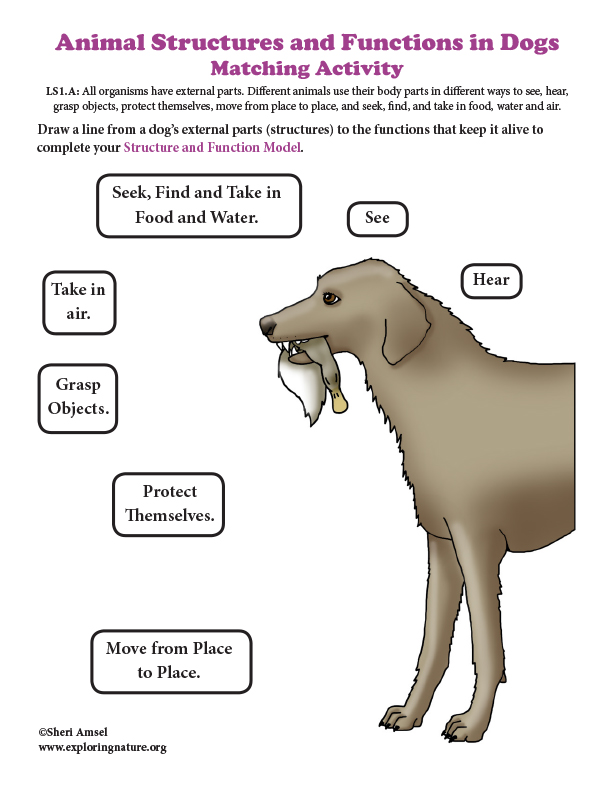

LS1.A: Structure and Function: All organisms have external parts. Different animals use their body parts in different ways to see, hear, grasp objects, protect themselves, move from place to place, and seek, find, and take in food, water and air.
LS1.B: Growth and Development of Organisms
• Adult plants and animals can have young. In many kinds of animals, parents and the offspring themselves engage in behaviors that help the offspring to survive. (1-LS1-2)
Performance Expectations Students who demonstrate understanding can:
1-LS1-2. Read texts and use media to determine patterns in behavior of parents and offspring that help offspring survive. [Clarification Statement: Examples of patterns of behaviors could include the signals that offspring make (such as crying, cheeping, and other vocalizations) and the responses of the parents (such as feeding, comforting, and protecting the offspring).]
When you research information you must cite the reference. Citing for websites is different from citing from books, magazines and periodicals. The style of citing shown here is from the MLA Style Citations (Modern Language Association).
When citing a WEBSITE the general format is as follows.
Author Last Name, First Name(s). "Title: Subtitle of Part of Web Page, if appropriate." Title: Subtitle: Section of Page if appropriate. Sponsoring/Publishing Agency, If Given. Additional significant descriptive information. Date of Electronic Publication or other Date, such as Last Updated. Day Month Year of access < URL >.
Amsel, Sheri. "Animal Structures and Functions in Dogs - Matching" Exploring Nature Educational Resource ©2005-2025. February 8, 2025
< http://exploringnature.org/db/view/Animal-Structures-and-Functions-in-Dogs-Matching >
